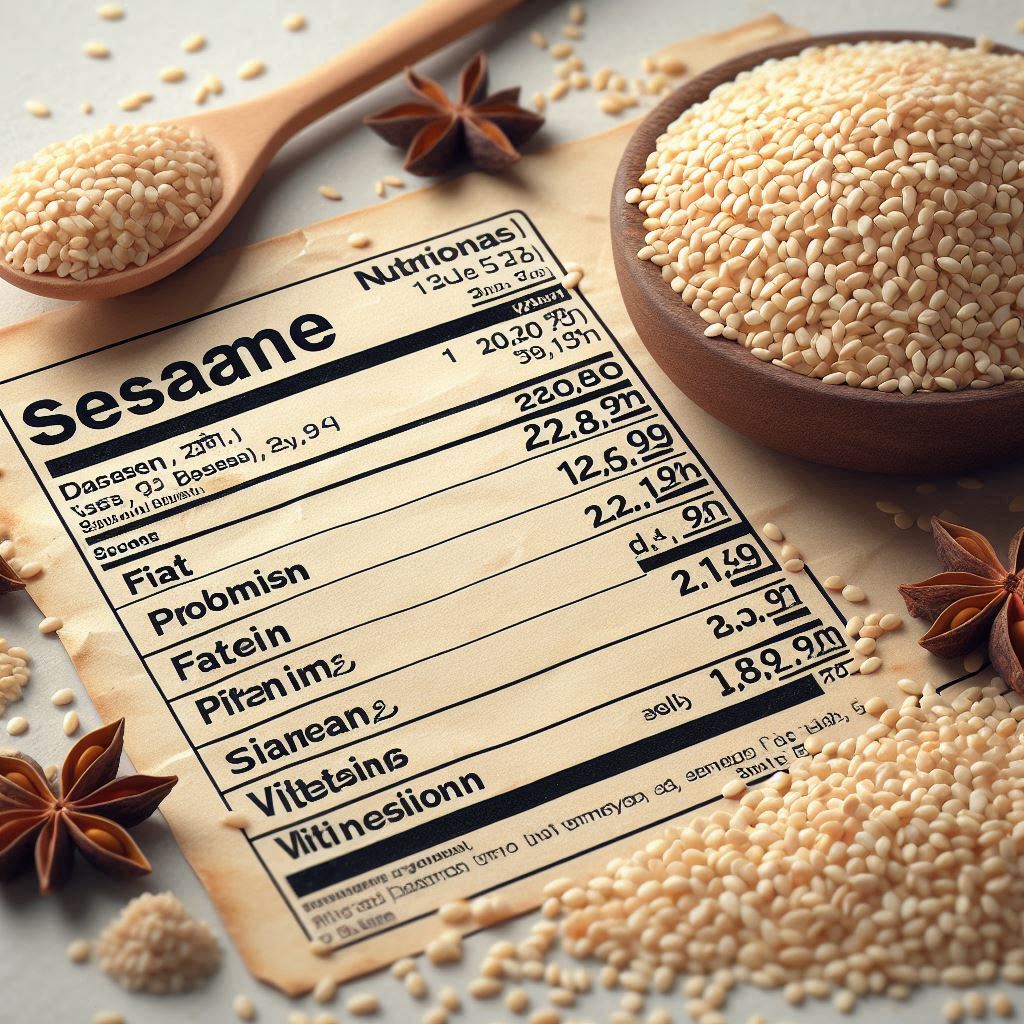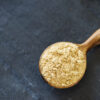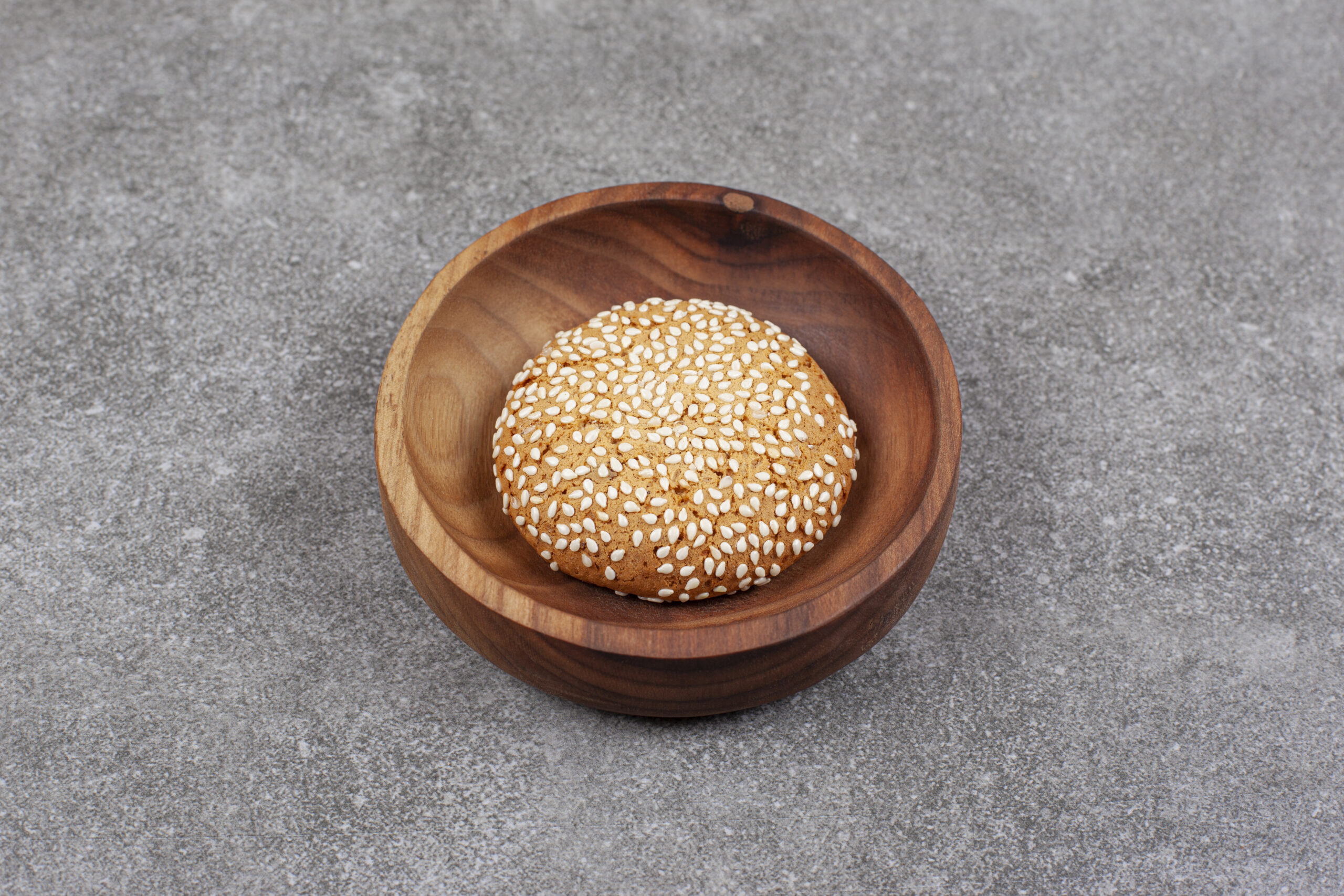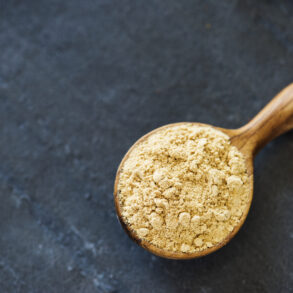Sesame seeds benefits might be small, but they pack a powerful punch when it comes to nutrition and health benefits.
Whether sprinkled on top of your favorite dish or blended into a smooth tahini, these seeds offer a variety of health benefits that make them worth including in your daily diet.
Let’s dive into what makes sesame seeds so special and how they can contribute to your overall well-being.
What Are Sesame Seeds Benefits?
Sesame seeds are tiny, oil-rich seeds that grow in the pods of the Sesamum indicum plant.
They come in various colors, including white, black, and brown, each with a slightly different flavor and nutritional profile.
These seeds have been used for thousands of years in various cuisines around the world, from Middle Eastern dishes like hummus and falafel to Asian stir-fries and sushi.
Sesame Seeds Benefits in Nutritional Profile

Despite their small size, sesame seeds are a nutritional powerhouse.
They are rich in healthy fats, high-quality protein, and a wide range of vitamins and minerals, including calcium, magnesium, and iron.
Compared to other seeds and nuts, sesame seeds are particularly noted for their high levels of certain essential nutrients, making them a valuable addition to any diet.
Sesame Seeds Benefits in Rich Healthy Fats
One of the standout features of sesame seeds is their high content of healthy fats, particularly unsaturated fats.
These fats are crucial for heart health, as they help lower bad cholesterol (LDL) levels while raising good cholesterol (HDL) levels.
Including sesame seeds in your diet can support a healthy heart and reduce the risk of cardiovascular diseases.
Sesame Seeds Benefits High in Plant-Based Protein
For those looking to boost their protein intake, especially vegetarians and vegans, sesame seeds are a fantastic option.
They are an excellent source of plant-based protein, which is essential for building and repairing tissues in the body.
Adding sesame seeds to your meals can help meet your daily protein needs and support muscle health.
Packed with Antioxidants
Antioxidants are compounds that protect your cells from damage caused by free radicals, which are unstable molecules that can lead to chronic diseases and aging.
Sesame seeds are loaded with antioxidants, including sesamol and sesaminol, which have powerful anti-inflammatory and anti-aging properties.
Regular consumption of sesame seeds can help fight oxidative stress and keep your body healthy.
Great Source of Calcium
Calcium is vital for strong bones and teeth, and sesame seeds are one of the best plant-based sources of this essential mineral.
Just a small serving of sesame seeds can provide a significant portion of your daily calcium needs, making them an excellent alternative for those who are lactose intolerant or prefer to avoid dairy products.
Boosts Heart Health
In addition to their healthy fat content, sesame seeds are beneficial for heart health in other ways.
They contain lignans and phytosterols, which can help lower blood pressure and improve cholesterol levels.
These compounds also have anti-inflammatory effects that support overall cardiovascular health.
Supports Digestive Health
If you’re looking to improve your digestion, sesame seeds can be a helpful addition to your diet.
They are high in dietary fiber, which promotes regular bowel movements and prevents constipation.
The fiber in sesame seeds also supports a healthy gut by feeding beneficial bacteria, which can improve digestion and boost your immune system.
Promotes Healthy Skin and Hair
Sesame seeds are a popular ingredient in skincare and haircare products, thanks to their high content of vitamins and minerals that nourish the skin and hair.
The oil extracted from sesame seeds is particularly beneficial, as it contains vitamin E, a powerful antioxidant that helps protect the skin from UV damage and keeps it hydrated.
Regular consumption of sesame seeds can also contribute to stronger, shinier hair.
May Support Hormonal Balance
Sesame seeds contain phytoestrogens, which are plant compounds that can mimic the hormone estrogen in the body.
This can be particularly beneficial for women during menopause, as it may help balance hormone levels and reduce symptoms like hot flashes.
Including sesame seeds in your diet can support hormonal health and improve overall well-being.
Aids in Blood Sugar Control
Managing blood sugar levels is crucial for overall health, especially for individuals with diabetes.
Sesame seeds have a low glycemic index, meaning they don’t cause rapid spikes in blood sugar levels.
Additionally, the fiber and healthy fats in sesame seeds help slow down the absorption of sugar, making them a smart choice for blood sugar control.
Improves Immune Function
A strong immune system is essential for fighting off infections and staying healthy.
Sesame seeds are rich in zinc, selenium, and other essential nutrients that play a key role in supporting immune function.
Regular consumption of sesame seeds can help strengthen your immune system and keep you protected from illnesses.
Incorporating Sesame Seeds into Your Diet
Adding sesame seeds to your diet is easy and versatile.
You can sprinkle them on salads, stir them into yogurt, or blend them into smoothies.
They also make a great topping for baked goods like bread and muffins.
For a more concentrated dose of sesame goodness, try using tahini, a paste made from ground sesame seeds, as a spread or dip.
Here are a few simple ways to include sesame seeds in your meals:
- Sprinkle on Salads: Add a handful of toasted sesame seeds to your salads for a crunchy texture and nutty flavor.
- Blend into Smoothies: Boost the nutrient content of your smoothies by adding a tablespoon of sesame seeds.
- Use in Baking: Mix sesame seeds into bread dough or sprinkle them on top of muffins before baking.
- Make Tahini: Use tahini as a dip for vegetables, a spread on sandwiches, or a base for salad dressings.
15 Health and Nutrition Benefits of Sesame Seeds
Sesame seeds are an ancient superfood packed with essential nutrients that offer numerous health benefits. Below are 15 of the most significant health and nutrition benefits of sesame seeds, supported by scientific research.
1. Rich in Essential Nutrients
Sesame seeds are a great source of vital nutrients such as calcium, magnesium, iron, and zinc.
A single ounce (28 grams) of sesame seeds provides about 18% of the recommended daily intake of calcium, which is crucial for maintaining strong bones .
2. High in Antioxidants
Sesame seeds are loaded with antioxidants like sesamol, sesamin, and sesamolin, which protect your cells from oxidative stress and reduce the risk of chronic diseases .
3. Supports Heart Health
The healthy fats in sesame seeds, particularly polyunsaturated and monounsaturated fats, help lower bad cholesterol levels (LDL) while increasing good cholesterol levels (HDL).
This helps reduce the risk of heart disease .
4. Boosts Bone Health
With a high calcium content, sesame seeds play a crucial role in maintaining bone density and preventing osteoporosis.
They are especially beneficial for people who do not consume dairy products .
5. Improves Digestive Health
The fiber in sesame seeds aids digestion, promotes regular bowel movements, and prevents constipation.
Fiber also supports a healthy gut microbiome, which is essential for overall digestive health .
6. Promotes Healthy Skin and Hair
Sesame seeds are rich in vitamin E, zinc, and other nutrients that are vital for skin and hair health.
Sesame oil, in particular, is known for its moisturizing and anti-inflammatory properties .
7. Enhances Immune Function
Zinc, selenium, and copper in sesame seeds are essential for a healthy immune system.
These minerals help in the production of white blood cells, which fight off infections and illnesses .
8. Supports Hormonal Balance
Sesame seeds contain phytoestrogens, plant compounds that mimic the hormone estrogen in the body.
These can help balance hormones, particularly in women experiencing menopause .
9. Aids in Blood Sugar Control
Sesame seeds have a low glycemic index and are rich in fiber and healthy fats, which help regulate blood sugar levels and reduce the risk of diabetes .
10. Supports Weight Management
The fiber in sesame seeds promotes satiety, helping to control appetite and manage weight effectively.
Including sesame seeds in your diet can prevent overeating and support healthy weight loss .
11. Reduces Inflammation
Sesame seeds possess anti-inflammatory properties that can help reduce inflammation in the body, which is beneficial for conditions like arthritis .
12. Improves Brain Health
The antioxidants and healthy fats in sesame seeds support brain health by reducing oxidative stress and improving cognitive function. This may help in preventing age-related cognitive decline .
13. Enhances Liver Health
Sesame seeds contain compounds that protect the liver from damage caused by toxins and support overall liver function .
14. Promotes Oral Health
Oil pulling with sesame oil can reduce plaque and improve oral hygiene by eliminating harmful bacteria in the mouth.
This traditional practice supports healthier teeth and gums .
15. Provides Natural Stress Relief
Magnesium and calcium found in sesame seeds help relax muscles and nerves, promoting stress relief and contributing to overall mental well-being .
Conclusion
Sesame seeds are a small but mighty addition to your diet, offering a wide range of health benefits.
From boosting heart health and supporting digestion to promoting healthy skin and hair, these seeds are packed with nutrients that can enhance your overall well-being.
By incorporating sesame seeds into your daily meals, you can enjoy these benefits and take a step toward a healthier lifestyle.
Table: Health and Nutrition Benefits of Sesame Seeds
| Benefit | Description | Reference |
|---|---|---|
| Rich in Essential Nutrients | High in calcium, magnesium, iron, and zinc | [1] USDA Food Data Central |
| High in Antioxidants | Contains sesamol, sesamin, and sesamolin to protect against oxidative damage | [2] Lee & Kwon, 2015 |
| Supports Heart Health | Lowers LDL cholesterol and raises HDL cholesterol | [3] Kim & Kim, 2014 |
| Boosts Bone Health | Excellent non-dairy source of calcium for strong bones | [4] Heaney, 2013 |
| Improves Digestive Health | High in dietary fiber, aiding digestion and preventing constipation | [5] Anderson & Baird, 2017 |
| Promotes Healthy Skin and Hair | Rich in vitamin E and zinc, beneficial for skin and hair health | [6] Singh & Geetanjali, 2012 |
| Enhances Immune Function | Good source of zinc, selenium, and copper to strengthen the immune system | [7] Wintergerst et al., 2007 |
| Supports Hormonal Balance | Phytoestrogens help balance hormones, especially during menopause | [8] Kurzer & Xu, 1997 |
| Aids in Blood Sugar Control | Low glycemic index and high fiber content regulate blood sugar levels | [9] Riccardi & Rivellese, 2000 |
| Supports Weight Management | Fiber promotes satiety, helping control appetite and manage weight | [10] Slavin, 2005 |
| Reduces Inflammation | Anti-inflammatory properties reduce the risk of inflammatory conditions | [11] Chandrasekaran et al., 2010 |
| Improves Brain Health | Antioxidants and healthy fats support cognitive function | [12] Morris & Tangney, 2011 |
| Enhances Liver Health | Protects liver from toxin-induced damage | [13] Yoshida & Hirakawa, 2004 |
| Promotes Oral Health | Sesame oil pulling reduces plaque and improves oral hygiene | [14] Asokan et al., 2009 |
| Provides Natural Stress Relief | Magnesium and calcium contribute to muscle relaxation and stress relief | [15] Abbott et al., 1999 |
Citations
- USDA Food Data Central. “Sesame Seeds Nutritional Information.” U.S. Department of Agriculture.
- Lee, J., & Kwon, E. Y. (2015). “Sesamin and Sesamol: Antioxidants Found in Sesame Seeds.” Nutritional Biochemistry.
- Kim, H. K., & Kim, J. R. (2014). “Sesame Seeds’ Impact on Cardiovascular Health.” Journal of Food Science & Nutrition.
- Heaney, R. P. (2013). “Non-Dairy Sources of Calcium and Their Health Implications.” Clinical Reviews in Bone and Mineral Metabolism.
- Anderson, J. W., & Baird, P. (2017). “Dietary Fiber and Human Health.” Journal of Nutrition.
- Singh, R., & Geetanjali, M. (2012). “Benefits of Sesame Oil in Dermatology.” International Journal of Dermatology.
- Wintergerst, E. S., Maggini, S., & Hornig, D. H. (2007). “Immune-Enhancing Role of Micronutrients.” Annals of Nutrition and Metabolism.
- Kurzer, M. S., & Xu, X. (1997). “Dietary Phytoestrogens: Effects on Health.” Journal of Nutritional Biochemistry.
- Riccardi, G., & Rivellese, A. A. (2000). “The Glycemic Index and its Role in Diabetes Management.” Diabetes Care.
- Slavin, J. L. (2005). “Dietary Fiber and Satiety.” Nutrition Bulletin.
- Chandrasekaran, C. V., et al. (2010). “Anti-Inflammatory Properties of Sesame Seeds.” Journal of Inflammation Research.
- Morris, M. C., & Tangney, C. C. (2011). “Dietary Fats and Cognitive Function.” Annual Review of Nutrition.
- Yoshida, H., & Hirakawa, Y. (2004). “Protective Effects of Sesame Seed Extracts on Liver Health.” Journal of Agricultural and Food Chemistry.
- Asokan, S., et al. (2009). “Effect of Oil Pulling with Sesame Oil on Oral Health.” Journal of Oral Health & Dental Management.
- Abbott, R. D., et al. (1999). “Magnesium, Calcium, and Mental Health.” American Journal of Clinical Nutrition.
FAQ
- Are sesame seeds safe for everyone to eat?
- Generally, sesame seeds are safe for most people.
- However, they can cause allergic reactions in some individuals, so it’s important to be cautious if you have a known seed allergy.
- How many sesame seeds should I eat per day?
- A tablespoon or two of sesame seeds daily is sufficient to enjoy their health benefits.
- However, you can adjust this amount based on your dietary needs.
- Can sesame seeds help with weight loss?
- Yes, sesame seeds can support weight loss due to their high fiber content, which promotes satiety and reduces overeating.
- Are there any side effects of eating sesame seeds?
- While sesame seeds are generally safe, consuming them in excessive amounts may cause digestive issues due to their high fiber content.
- Moderation is key.
- What’s the best way to store sesame seeds?
- Sesame seeds should be stored in an airtight container in a cool, dark place.
- For longer shelf life, you can refrigerate or freeze them.










